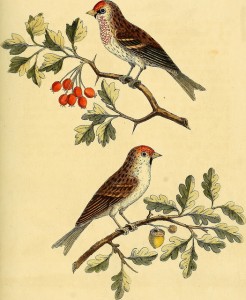by Jayla Rae Ardelean, Colorado Review Associate Editor
 Sometimes I open up our nonfiction submissions queue and see “bird” in the title of an essay. My instinct is to click on it and dive in immediately. Around here, people know that the bulk of what I write about is birds, birding, and loving birds. (And the fact that this blog post is still about birds proves my point.)
Sometimes I open up our nonfiction submissions queue and see “bird” in the title of an essay. My instinct is to click on it and dive in immediately. Around here, people know that the bulk of what I write about is birds, birding, and loving birds. (And the fact that this blog post is still about birds proves my point.)
But my impulse to quickly click buttons to get reading an essay about birds causes me to ask: As editors, do we read for the things we love to write about?
It might be a fair assumption that this is sometimes true. As readers for Colorado Review, we make our way through a lot of manuscripts each week, and if they happen to be about something we’re familiar with or personally interested in, we’re excited to read them. But perhaps more interesting are those moments when we open up an essay, story, or poem, and nothing is familiar—everything about it is new and different to us and the response is awe. We connect with pieces of writing that teach us or explore a topic we know a thing or two about, right?
A perfect example of this was Daniel Sherrell’s essay “Big Pin” from our Summer 2014 issue. In this essay, Sherrell writes about his experience as a high school wrestler and the life paths he and a few of his teammates, as well as his coach, have followed since then. As the manuscript circulated around the office, the conversation often lead with “I know almost nothing about wrestling—in fact, I don’t even like wrestling—but this essay captivated me.” The editors who championed “Big Pin” may not have had much of an affinity for its subject matter, but Sherrell’s connections between life and wrestling as well as his distinct voice drew them in nevertheless.
So back to birds. I love to read about them and I love to write about them. With this comes some knowledge about certain species, birding hotspots, birding tips, etc. So when I read an essay that includes these subjects, I tend to appreciate it. But I have to be a harsh critic about it, too. An essay purely about a particular birding experience—even an awesome one—won’t sell me for Colorado Review even if I enjoyed reading it. There still has to be, as with all essays of interest for our magazine, a parallel narrative, a deeper meaning being made within the essay, or some movement in asking and attempting to answer a larger question that connects to its readers. I’ve read a few essays related to birds in the past year that almost reached this mark, but when it comes down to it, content alone cannot carry the essay through.
We need more than a bird call; we need an entire song.